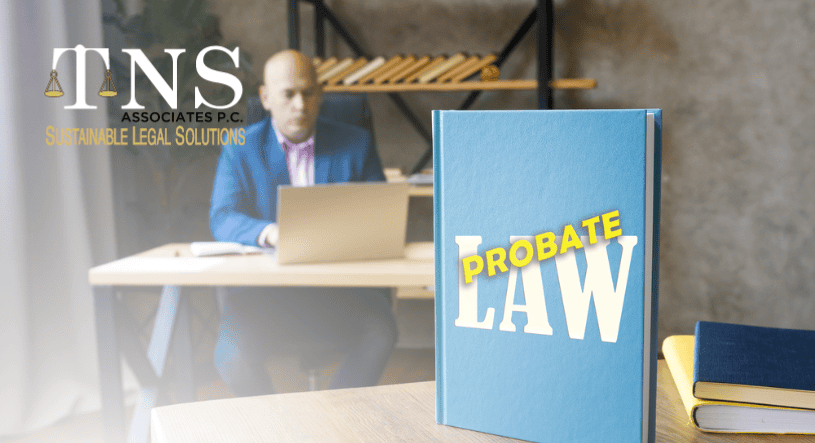The Probate Process

Probate is the judicial procedure whereby a will is “proved” in a court of law and accepted as a valid public document that is the true last testament of the deceased, or whereby the estate is settled according to the laws of intestacy in the absence of a legal will.
Understanding Probate
The probate process includes the identification and inventory of the deceased person’s property, having the property appraised, paying debts and taxes, and eventually distributing the remainder of the estate to rightful beneficiaries.
The length of the probate process varies depending on the complexity of the estate and the workload of the probate court. However, probate typically takes several months to a year to complete.
Probate has several purposes, including:
- To identify and gather the deceased’s assets
- To pay off any debts owed by the estate
- To distribute the remaining assets to the beneficiaries named in the will or to the heirs at law if there is no will
- To ensure that the deceased’s wishes are respected
- To protect the interests of the beneficiaries and creditors of the estate
The following people are typically involved in the probate process:
- Executor or Personal Representative
- Beneficiaries
- Creditors
The Stages of Probate
The steps in the probate process vary from state to state, but the general process is as follows:
- Step 1. Filing the Petition
For probate administration in Denver, the process begins with the filing of a petition with the probate court to either admit the will to probate and appoint an executor or to appoint an administrator of the estate if there is no will. - Step 2. Notification of Heirs and Creditors
Heirs, creditors, and the public must be officially notified of the decedent’s passing and the probate proceeding. - Step 3. Inventory and Appraisement
The executor or administrator must take inventory of the probate assets in Littleton or other jurisdictions and appraise them if necessary. - Step 4. Settling Debts and Taxes
Before distribution, the estate’s debts and taxes must be paid. - Step 5. Distribution of Assets
What follows is the distribution of the remaining assets in accordance with the will or state law.
Avoiding Probate
There are a few things you can do to avoid probate, including:
- Create a Living Trust
A living trust is a legal document that allows you to transfer ownership of your assets to a trustee, who will manage the assets and distribute them to your beneficiaries after your death. Living trusts are often used to avoid probate because the assets in the trust are not subject to the probate process. - Joint Tenancy
Joint tenancy is a type of ownership that allows two or more people to own property together. When a joint tenant dies, their interest in the property automatically passes to the surviving joint tenants without going through probate. - Payable on Death Accounts
Payable on death (POD) accounts are bank accounts or investment accounts that are designated to be paid to a named beneficiary after the account holder’s death. POD accounts also avoid probate because the assets in the account go directly to the beneficiary.
Why Choose Thomas N. Scheffel & Associates, P.C.?
The probate process can be a maze of legal steps and proceedings. As you consider the future of your estate or navigate the current probate of a loved one, remember that you are not alone. Whether you are looking into the creation of wills, establishing trusts in Denver, or seeking the services of a family law attorney in Cherry Creek CO, Thomas N. Scheffel & Associates, P.C. is here to provide the legal assistance you require.
Take a proactive step towards securing your legacy and protecting your loved ones. If you need assistance with probate administration, contact Thomas N. Scheffel & Associates, P.C. We have experienced probate attorneys who can help you navigate the probate process and ensure that the deceased’s estate is administered smoothly.
Reach out to us for a consultation to discuss Denver probate filing.
